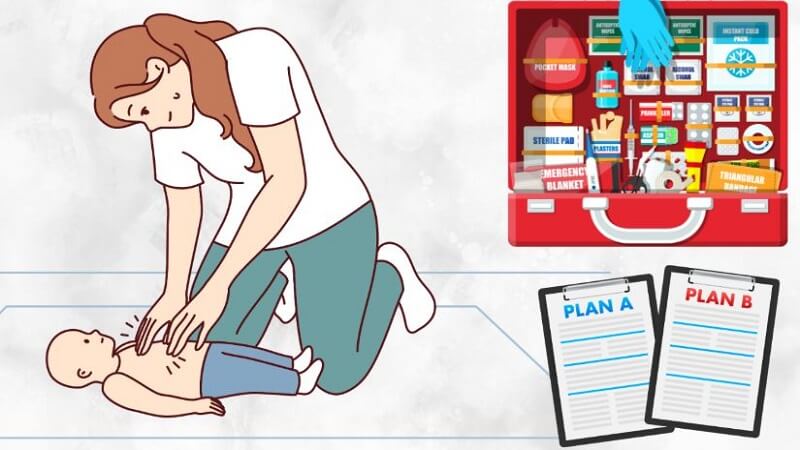Parenting comes with its fair share of surprises — some adorable, some chaotic, and others downright scary. Whether it’s a bumped head, a scraped knee, or a child suddenly choking on a snack, moms often find themselves in the role of first responder before any professional can arrive. That’s why more parents are taking proactive steps like earning a First Aid Certification Vaughan, ensuring they’re not just loving caregivers, but also calm protectors when the unexpected strikes.
Accidents Happen — And That’s Okay
No matter how safe we try to make our homes, the truth is that accidents are part of growing up. Toddlers explore fearlessly. Teens push boundaries. Even parents get clumsy juggling the chaos of everyday life.
The question isn’t whether accidents will happen — it’s whether you’ll know what to do when they do.
- Can you stop a cut from bleeding quickly?
- Do you know how to recognize a concussion?
- Would you know how to help if someone stopped breathing?
These are intense questions — but they’re real ones. First aid certification doesn’t just teach you technical skills. It gives you the ability to think clearly, act confidently, and protect the people you love most.
The Most Common Home Emergencies Moms Deal With
Let’s look at a few examples of emergencies that many families will face at some point — and how being prepared makes all the difference.
1. Choking While Eating
Toddlers love to stuff their faces with food. It’s cute… until it’s not. First aid training teaches you how to perform back blows and abdominal thrusts safely for infants, children, and adults.
2. Burns from Hot Objects or Liquids
A spilled cup of coffee, a curious hand on the stove — burns can happen in an instant. Knowing how to properly cool a burn and protect the skin while waiting for help can prevent infection and scarring.
3. Cuts and Lacerations
Whether it’s a kitchen accident or a fall outside, deep cuts need to be treated fast. Learning how to apply pressure and dress wounds properly can minimize blood loss and reduce panic.
4. Allergic Reactions
From nut allergies to insect stings, severe allergic reactions can escalate quickly. First aid courses cover how to recognize anaphylaxis and administer an EpiPen until paramedics arrive.
5. Falls and Head Injuries
It’s not just kids. Adults trip over toys, pets, or their own feet — especially when multitasking. Understanding how to assess someone for signs of a concussion or spinal injury is a critical skill.
First Aid Certification: More Than Just Bandages
Many moms think first aid training is only for nurses, teachers, or daycare workers. That couldn’t be further from the truth. Certification is designed to be accessible, practical, and life-changing — no matter your background.
Here’s what you actually learn:
- CPR for adults, children, and infants
- How to use an AED (automated external defibrillator)
- Treating burns, sprains, fractures, and head injuries
- Managing seizures, strokes, and diabetic emergencies
- Handling environmental emergencies (hypothermia, heat stroke)
The training is clear, hands-on, and empowering. It often only takes a few hours — and many programs offer weekend or evening options for busy parents.
Confidence Is Contagious
One of the biggest benefits of first aid certification? Confidence.
When you’re calm, your kids stay calmer. You become the anchor in an overwhelming situation. That emotional control can actually make it easier to provide care, communicate with emergency services, and help others stay composed.
Plus, kids are observant. When they see you take safety seriously — whether you’re checking the smoke detector, restocking the first aid kit, or learning CPR — they learn the value of responsibility and preparedness too.
Turning Safety Into a Family Value
Want to go a step further? Make emergency preparedness a family affair.
- Create an emergency contact list and post it somewhere visible
- Keep a well-stocked first aid kit in your kitchen, car, and diaper bag
- Teach older kids age-appropriate skills like calling 911 or applying a bandage
- Run fun “safety drills” so your kids feel confident, not scared
Empowering your family doesn’t just keep them safe. It makes them feel strong.
Final Thoughts
We all want to protect our families. But love alone isn’t always enough in the face of an emergency. That’s where knowledge comes in.
Getting your first aid certification is one of the most valuable things you can do as a parent. It’s not about being perfect — it’s about being prepared. Because when you’re the first on the scene, you’ll be ready to lead with courage, clarity, and care.

